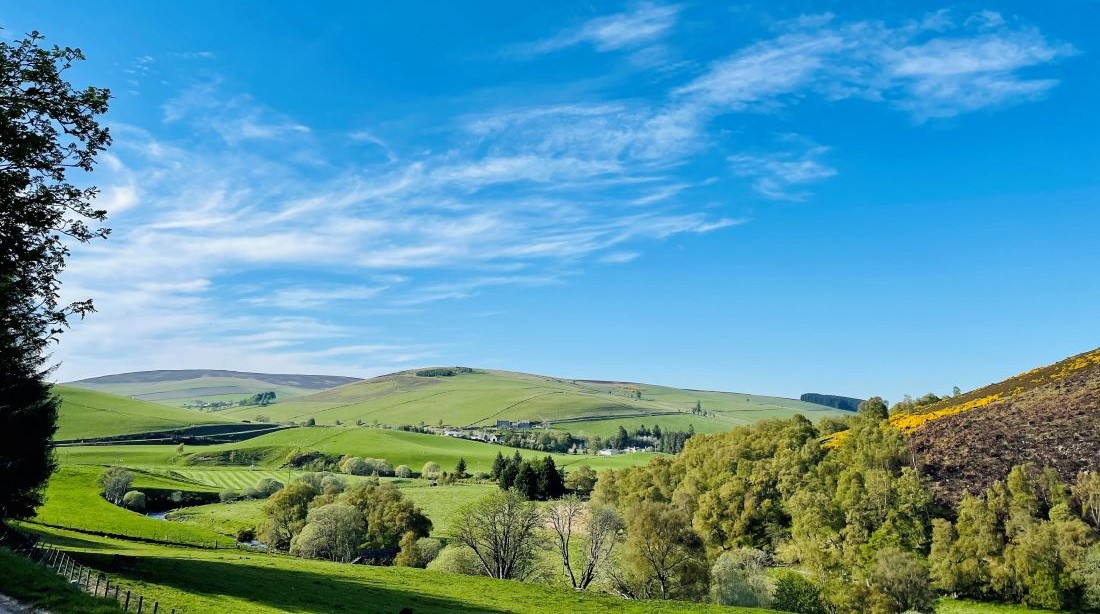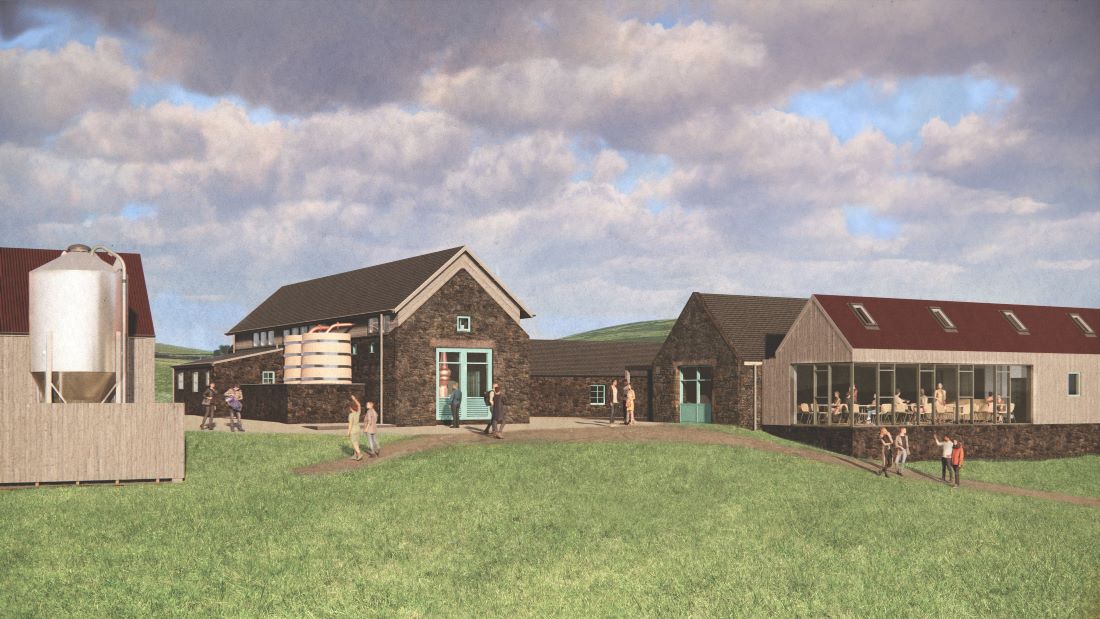This website uses cookies so that we can provide you with the best user experience possible. Cookie information is stored in your browser and performs functions such as recognising you when you return to our website and helping our team to understand which sections of the website you find most interesting and useful.
Historic new distillery, The Cabrach, releases ‘The Feering’ whisky and unveils purpose-driven future plans
By Tessa Crowley | 25 April 2024 | Culture, Food & Drink, Lifestyle, Philanthropy
As the first stills arrive ready to be fired up, we meet the minds behind Scotland’s first purpose-driven and community owned distillery, The Cabrach.

Whether Scotland needs another distillery is barely a question for debate. Scotch lovers say the more the merrier, and the recent reopening of a raft of abandoned ‘ghost’ distilleries is a welcome step in the sector’s history, bringing employment and regeneration to faded communities.
In an ambitious undertaking in a corner of tranquil Speyside, an entirely new enterprise has quietly been underway. Brought to life over the past years, The Cabrach will offer a novel new approach, community-owned and placing social impact at its heart to amplify the benefit a distillery brings. We joined The Cabrach Trust on a rainy evening in London, to learn more about the opening of it’s new Scotch whisky distillery, and the enterprising approach set to breathe new life into this neglected neighbourhood.
Run as a Community Interest Company, the first of its kind in the whisky world, social impact is central to The Cabrach’s efforts. Run as a commercial business with community value, all profits from The Cabrach Distillery will be funneled back into the area, offering new infrastructure and opportunities, with 12 full time and at least 50 volunteer and part time roles within the distillery alone.
The idea has clearly caught the imagination of the industry, with Scottish stalwarts quick to bequeath support. In a sector first, distillation equipment specialists Forsyths have forged a unique partnership with the Trust, becoming a founding partner alongside the Ethos Foundation and Bently Foundation, with additional funding from Highlands & Islands Enterprise and the Scottish Government.
As Jonathan Christie, Chief Executive Officer of The Cabrach Trust, attests; “all these people have rallied behind what is a beautiful idea; to layer in the social purpose as a force for long-term sustainable change”.

He’s quick to stress that “the distillery is the blue ribbon not the whole project”. In the short-term a programme of events and workshops in rural skills, tree planting and nature will engage the community and attract visitors, with longer term ambitions for affordable housing, further land acquisition, and essential infrastructure for the community. There are hopes to reopen the local school, shut down 15 years ago, and establish Cabrach as a place of learning, with ecology and farming at the fore. With a new nature Discovery Trail and a heritage arts programme already running, the promise of employment opportunities in this increasingly abandoned town – which has seen its sparse population decrease from 1,000 to only 100 permanent residents – is a beacon of hope and could provide a blueprint for other rural communities. However, as Jonathan acknowledges, “without the distillery, there’s no chance”.
As for the whisky itself, time will tell. But with names including Alan Winchester, former master distiller of The Glenlivet and Master of Malt for The Cabrach, and Bladnoch CEO and ex-Edrington executive Glen Gribbon, overseeing proceedings, it looks well positioned for success, with desirability – one hopes – amplified through the distillery’s unique purpose and limited scale.
For those hoping to get their hands on the exclusive first bottling, supporting the social enterprise’s ambitions through The Cabrach Collective may be an attractive option. Limited to a relatively modest 1,849 founding members, supporters receive an exclusive range of bottlings as thanks, including: the premier release of The Cabrach single malt whisky once produced, all three in The Feering series of Speyside blended malt whiskies, access to future Collective-only distillery releases for purchase, and a wider suite of benefits.
Looking to the future, sustainability is also front of mind. While, they admit, it’s impossible to build a zero carbon distillery, by building from the ground up they avoid many of the challenges and pit-falls of retrofitting. Allowing them to make sustainably-minded decisions from the start, they’re embracing the available technology, “making as many good decisions as we can before we get started, and improving on it as we go”. We’ll raise a dram to that!







